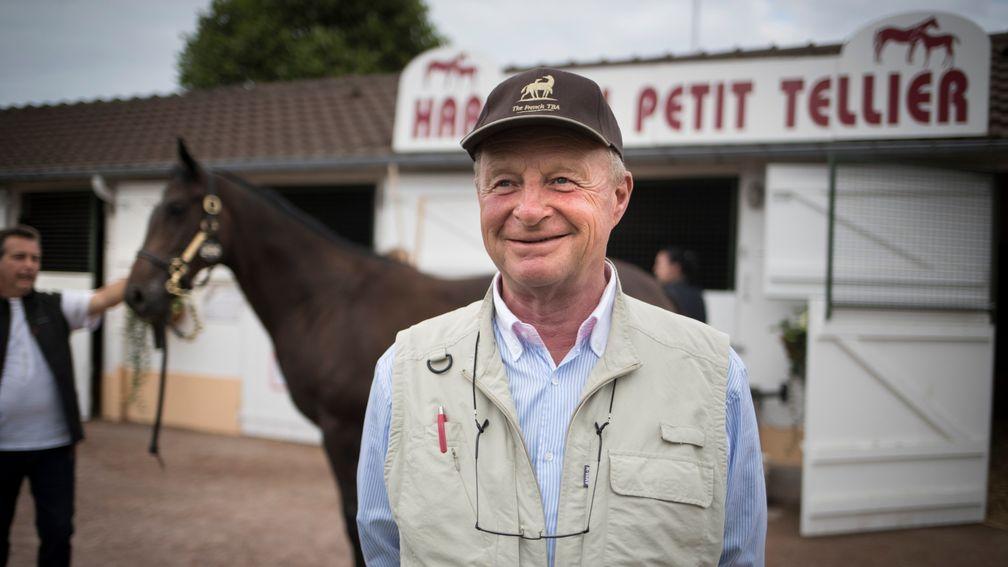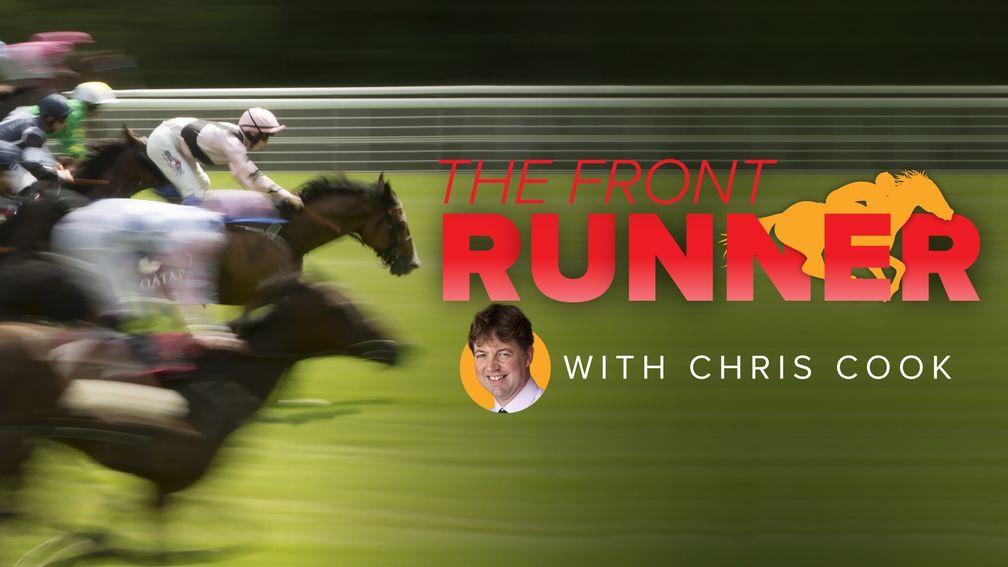D-Day 80th anniversary - the human and equine stories linked to one of the most pivotal moments in 20th century history

As world leaders and an ever-dwindling band of D-Day veterans gathered in Normandy this week to commemorate the 80th anniversary of the Allied invasion of Nazi-occupied France, there will scarcely be a family in Britain without some connection to the events of June 6, 1944.
It is an occasion for reflection; for recalling the sacrifices made on that day and in those that followed. And at the Racing Post for recalling some of the human and equine stories which inextricably bind the sport to this pivotal moment in 20th century history.
Captain Ryan Price, the legendary trainer of Grand National winner Kilmore and Gold Cup hero What A Myth, was the most famous racing professional to land on the Normandy beaches on D-Day. A lieutenant in No.6 Commando, Price and his men headed for Sword, the easternmost of the five beaches.
In The Price Of Success, a biography published in 1982, BBC Radio's Peter Bromley wrote of Price's landing craft: "The two ramps came crashing down and Ryan was the first man down. It was 0840. Instead of landing on sand, Ryan disappeared from view; the water was well over his head and, with a 60-pound pack, he was perilously close to drowning. He pulled the quick release of his pack and slowly came spluttering to the surface. To the bottom went all his ammunition, twenty-four hours' rations and grenades.

"As he fought to clear his lungs of salt water, there was an earth-shattering explosion above him. His landing craft had taken a direct hit: the cramped steel decks were twisted open, buckled and smoking, revealing terrible carnage amongst Ryan's troops inside. Half of the men died instantly when the shell struck.
"The survivors limped quietly ashore and Ryan organized them into a fighting group. Many had lost their personal weapons and ammunition when the [landing craft] had gone up. They scavenged around on the beach, removing rifles and bandoliers of small-arms ammunition from the bodies of troops of the East Yorkshire Regiment who had been killed in the first assault. The first priority was to get the hell off the beach, and Ryan and his depleted troop pushed on over the dunes."
By the end of D-Day Price's unit had crossed a river and captured the village of Le Plein. Taking heavy casualties, the Commandos continued in the wider Battle of Normandy and the push towards Paris.
The former jump jockey and now owner of Brookside Stud, John 'Jinks' James, spent the first five years of his career with Price and, like virtually everyone who worked at his yard at Findon, West Sussex, points to his talents as a trainer of men as well as horses.

"People who didn't know him thought he was cantankerous and we used to say that when he was giving you a bollocking, you could hear him on the beach in Worthing," said James.
"When I first went there, Fred Winter was in his final year as stable jockey. Then it was Josh Gifford, Paul Kelleway, Bob Jones, Taffy Salaman, Ben Hanbury, Gordon Holmes, Jeremy Glover. It was a whole list of people who went on to do well."
James added: "When I went there at the age of 15 I'd never been out of Lancashire. I walked up the hill and he was in the garden. He asked what I was there for and I said I wanted to be a jockey. He stood back and looked at me and said, 'Well I'll tell you one thing my boy. If I don't make a jockey out of you, I'll make a man out of you'."
Stud farms that bore witness to the Allied invasion
Commemorated at the vast US military cemetery in Colleville as "this embattled shore, portal of freedom", Normandy is also home to swathes of pasture where France’s best thoroughbreds are raised, and several have very direct and sometimes painful connections to the events which began on June 6.
Barely five minutes inland from Omaha Beach and the Colleville memorial, where on Thursday Presidents Biden and Macron led the collective act of remembrance, the Chambure family's Haras d’Etreham has been a nursery for such champions as Urban Sea, King's Best and Almanzor.

If you know where to look, there are still grassed-over craters within the 225 hectare site, dating from the bombardment by the USS Baldwin which preceded the village of Etreham’s liberation by soldiers of the 26th Infantry on the morning of June 9.
While the Americans drove inland through the westerly Calvados department of Normandy, troops from Britain, Canada and Poland fought their way south from the beaches of the Orne, first through Caen and then Falaise, while military planners with a fondness for racing launched assaults codenamed Epsom, Goodwood and Totalize.
On the northern approach to Argentan, Patrick Chedeville today runs the Haras du Petit Tellier, home to four stallions who include Prix du Jockey Club and Irish Champion Stakes winner The Grey Gatsby, and champion sprinter Muhaarar.
In 1944 the stud was under the stewardship of Chedeville's grandfather, Andre, and was home to the stallion Prince Rose, an antecedent of US-bred greats including Round Table, Mill Reef and Secretariat.

"In 1944 there was a huge amount of bombing all over Normandy, especially of towns like Argentan with big railway stations," said Chedeville. "There was an alarm warning of a bombing raid and my grandfather sent my father [Paul Chedeville] to go and bring Prince Rose back in from the paddock.
"It was only just before the bombing started and the horse refused to go into his regular stall. Everyone was worried about taking shelter for themselves and finally my father managed to persuade Prince Rose to go into a different box.
"After the bombardment they found Prince Rose with a shrapnel wound to his chest, and he bled to death in front of them."
Other horses who were either killed or simply vanished during the Battle of Normandy included Marcel Boussac's dual Prix de l’Arc de Triomphe heroine Corrida.
Chedeville said: "One owner who was particularly impacted was Marcel Boussac, who had Haras de Fresnay le Buffard, which is owned today by the Niarchos family. He was the leading owner at the time and the occupiers took some of the stallions and the best broodmares back to Germany."

The Front Runner is our unmissable email newsletter available exclusively to Members' Club Ultimate subscribers. Chris Cook, the reigning Racing Writer of the Year, provides his take on the day's biggest stories and tips for the upcoming racing every morning from Monday to Friday. Not a Members' Club Ultimate subscriber? Click here to join today and also receive our Ultimate Daily emails plus our full range of fantastic website and newspaper content.
Published on inBritain
Last updated
- 'It's a different race now but one we certainly feel is growing' - Aintree boss thrilled with Grand National as crowds rise
- All to play for: where the jumps trainers' championship will be won and lost
- 'Turnover was well up on last year' - positive signs for Grand National meeting as bookmakers reflect on big race
- 'We've got some wonderful horses for the future' - Paul Nicholls can't wait for next season after two Aintree Grade 1 strikes
- 'Two Group 1s takes a fair bit of beating' - Connor Beasley reflects on stunning Dubai World Cup night double
- 'It's a different race now but one we certainly feel is growing' - Aintree boss thrilled with Grand National as crowds rise
- All to play for: where the jumps trainers' championship will be won and lost
- 'Turnover was well up on last year' - positive signs for Grand National meeting as bookmakers reflect on big race
- 'We've got some wonderful horses for the future' - Paul Nicholls can't wait for next season after two Aintree Grade 1 strikes
- 'Two Group 1s takes a fair bit of beating' - Connor Beasley reflects on stunning Dubai World Cup night double
